
 It might be because her name looks hard to pronounce – Ngaio is said nai-0h, though the Marsh part is easy enough. Or perhaps it’s her relatively small body of work – 32 novels is less than half Agatha Christie’s 66. Then again, maybe it’s her humble roots in remote New Zealand. However, of the four queens of the Golden Age, Ngaio Marsh is probably the least well known. So during Classics in September 2014, we decided to put that right and take a look at five of her best books and they’re all great examples of Golden Age crime fiction.
It might be because her name looks hard to pronounce – Ngaio is said nai-0h, though the Marsh part is easy enough. Or perhaps it’s her relatively small body of work – 32 novels is less than half Agatha Christie’s 66. Then again, maybe it’s her humble roots in remote New Zealand. However, of the four queens of the Golden Age, Ngaio Marsh is probably the least well known. So during Classics in September 2014, we decided to put that right and take a look at five of her best books and they’re all great examples of Golden Age crime fiction.
Edith Ngaio Marsh was born in Christchurch in 1895, and in 1934 A Man Lay Dead was published. It featured her detective, Inspector Roderick Alleyn of the Criminal Investigation Department in London’s Metropolitan Police. In the mid-1920s she did what many an antipodean 20-somethings did and moved to London where she was able to enjoy in her great passion – the theatre. As a student she’d been an actress, and while in London became a producer of plays. Unlike some of the other greats of the Golden Age, Marsh continued writing up until shortly before her death in 1982, continuing to publish quality novels following Inspector Alleyn as he worked in London and holidayed in New Zealand. The following selection covers most of Marsh’s career, and show her the best of her work.
 Overture to Death (1939)
Overture to Death (1939)
Marsh’s eighth novel features all the hallmarks of a great Golden Age mystery including a quiet village setting; a dead spinster with an absurd name (Idris Campanula, a name made for small-town theatre); and a detective who arrives on the scene and quickly realises there’s more to this murder than meets the eye. Despite the relatively cosy nature of the story itl has more than its fair share of backstabbing and murder. The ingenuity of the final reveal, and the rather unique murder weapon, show why Marsh is considered one of the queens of the Golden Age.
Buy now on Amazon
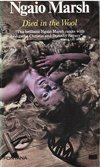 Died in the Wool (1945)
Died in the Wool (1945)
Died in the Wool is different to other Golden Age novels in its setting – a remote sheep farm in New Zealand where one of the country’s members of parliament has been found dead. Another unique factor is the time, during World War II, and the fact that the detective is in New Zealand on counter espionage work. Usually, Golden Age fiction ignored the tragedies of the real world. The detective doesn’t even arrive on the scene until 15 months after the murder, and most of the evidence is gathered through hearsay. More creepy and sinister than many of Marsh’s earlier works, and perhaps most interesting for its description of rural New Zealand during the War.
Buy now on Amazon
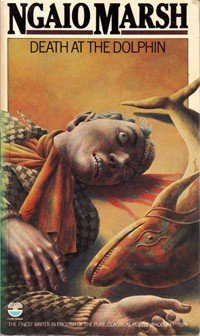 Death at the Dolphin (1967)
Death at the Dolphin (1967)
Also known as Killer Dolphin, this book tells the story of a murder at the newly-restored Dolphin Theatre. All of London is abuzz with talk of a new play, The Glove, based on the discovery of a genuine Shakespearean glove, until death overshadows the action on stage. Roderick Alleyn, now a superintendent, is again on hand to find out who the murderer was. This is Marsh at her best, writing about the theatre – in fact it often seems as if the book is more about treading the boards than the crime, and the addition historical details of the theatre make this novel interesting not just for the investigation, but also for its richness of detail and interesting, likeable characters.
Buy now on Amazon
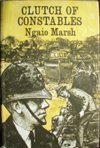 Clutch of Constables (1968)
Clutch of Constables (1968)
Marsh’s next novel concerns her other love – art. Alleyn is on a small river cruise and must trap a criminal mastermind before he strikes again. The murderer is one of the usual odd bunch you find on cruises in Golden Age novels. Could it be one of two unpleasantly hygienic Americans, the aloof Ethiopian doctor, the snooping cleric with the wall-eye, or perhaps artist running away from her success? The title refers to a series of forgeries of works by John Constable, the plot is complex, the character portrayals deep and psychological, and the ending supremely enjoyable.
Buy now on Amazon
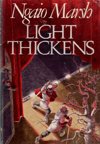 Light Thickens (1982)
Light Thickens (1982)
Marsh’s final novel takes its title from a line in Macbeth, and once again has the stage as its setting. Many of its characters appeared previously in Death at the Dolphin and, like her earlier works set in the theatre, the stage itself is central with murder acting as a subplot. Alleyn, now a Chief Superintendent, investigates four murders during a production of the Scottish Play and like Shakespeare’s tragedy the book is dark, psychological and more than a little gory. Perhaps this is Marsh’s best novel, particularly when understood in relation to her other works. It proves she was capable of writing great crime stories right to the end.
Buy now on Amazon
Despite being one of the least well known Queens of the Golden Age, Marsh’s works are often more fun, more intense, and more interesting than some of the more well-known Golden Age authors, which is why many are still in print today.
Classics in September is brought to you by Crime Fiction Lover and Bloomsbury Reader.






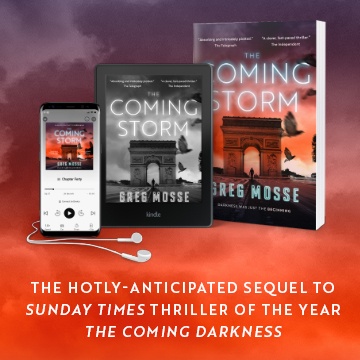
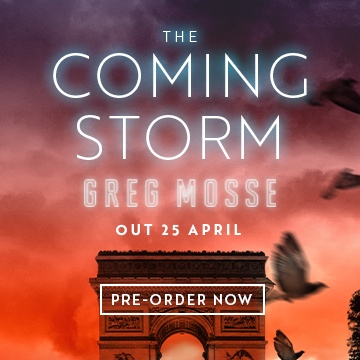
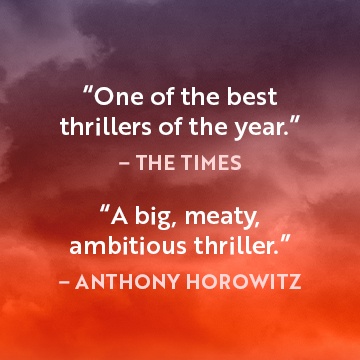
Interesting, as I’ve read and reviewed a few Marsh novels on my blog and was under the assumption that I simply hadn’t found a good one yet – however you cite Clutch of Constables as a highlight whereas despite the first half being engrossing, once Alleyn turns up, the charm that was there disappears overboard, along with his wife. It’s a similar case with False Scent which, pre-murders, has some charming set-ups concerning theatre life but once she hits the whodunit button, there is an abrupt change of gears and the charm vanishes until the epilogue. Oh, and it gives away part of the plot in the title!
It seems (and I have only read three of them – the horrible Surfeit of Lampreys being the third) that while a talented writer, I’m not convinced that she was a talented mystery writer. I’ll try another in the near future as I know that she’s well regarded but so far, her back catalogue has been a disappointment to me.